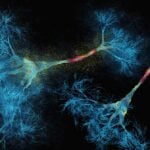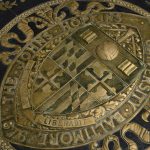INBT Faculty Among Hopkins Researchers Named American Association for the Advancement of Science Fellow

508 scholars recognized for their contributions to astronomy, engineering, neuroscience, and chemistry, as well as biological and medical sciences
Ten Johns Hopkins University researchers are among 508 distinguished scholars elected to the newest class of fellows of the American Association for the Advancement of Science, or AAAS, the world’s largest general scientific society. Fellows are selected annually for their contributions to their respective fields and the body of science as a whole.
The 2022 class of fellows will be celebrated in Washington, D.C., this summer and will be featured in the AAAS news and notes section of Science in February.
Tza-Huei (Jeff) Wang is a professor in mechanical engineering and biomedical engineering at the Whiting School of Engineering. His research focuses on the development of innovative micro- and nano-biotechnologies for molecular analysis and biomedical research, with a particular focus on advancing the detection of genetic and epigenetic biomarkers for cancer and other diseases to improve patient outcomes. Wang is recognized for distinguished contributions to the development of bioanalytical methods for molecular analysis and biomedical research, including circulating tumor DNA detection and point-of-care diagnostics.
Douglas Robinson is a professor and cell biologist at the Johns Hopkins School of Medicine. His research investigates how cells form the shapes required for the specialized functions necessary for human health, and he has been honored several times for his work to advance STEM diversity and inclusion efforts. Robinson is recognized for his distinguished contributions to the field of cell biology, particularly in mechanobiology, and for making STEM and the medical health sciences accessible and inclusive for all.
See the full story and list on the Hub.
Latest Posts
-
 A bold new approach to autoimmune diseases
November 19, 2025
A bold new approach to autoimmune diseases
November 19, 2025
-
 INBT STUDENTS AMONG 2024 PURA AWARD RECIPIENTS
November 18, 2025
INBT STUDENTS AMONG 2024 PURA AWARD RECIPIENTS
November 18, 2025
-
 Pathways to Entrepreneurship
November 17, 2025
Pathways to Entrepreneurship
November 17, 2025


